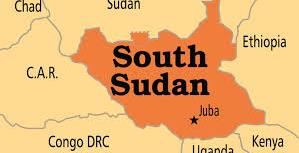South Sudan is “a hijacked state” and its system of “violent kleptocracy” has seen leaders seize institutions, stoke violent conflict and commit mass atrocities, US-based advocacy group Enough Project said on Wednesday.
In a report titled, “A Hijacked State: Violent Kleptocracy in South Sudan,” Enough Project describes a violent competition for the spoils of power, and charts the origins and formation of a deeply corrupt system that affects nearly every economic sector.
The report accuses the country’s military elite of hijacking power through violence and profiteering from the conflict that only ended with a tentative peace agreement inked in September 2018.
However, the country’s economy, it said, remains in tatters its people are in urgent need of emergency aid while its leaders enjoy luxury.
“Amid the chaos of war, the ruling elites ransacked various sectors of the economy. South Sudan’s violent kleptocracy has distorted the country’s institutions, heaping catastrophic consequences on the national monetary reserve and creating an atmosphere in which too many hands are left to freely and repetitively reach into the public treasury with impunity,” partly reads the report released Thursday.
“Services remain undelivered, business practices undermine the rule of law, and corruption abounds,” it adds.
Brian Adeba, the report co-author and Deputy Director of Policy at the Enough Project, said the advent of peace requires more than the silence of the guns, adding that albeit a peace deal was signed in September, it falls short of addressing the root cause of conflict.
“To avoid a return to destructive conflict, stringent measures must be in place to bolster accountability and stymie the destructive corruption that incentivized war,” he stressed.
The report warns that last year’s peace deal is in danger of being violated just like the similar accords and ceasefires signed since 2013.
It, however, argued that South Sudan’s peace prospects will remain weak unless “network sanctions, anti-money laundering measures, prosecutions, and enhanced travel bans” are put in place.
The report also called for support for the civil society and journalists.
“Leaders and donors should not only hold South Sudanese leaders to their treaty-bound public commitments to promote an empowered civil society, but also directly increase their own support of South Sudanese civil society actors’ efforts to hold their leaders accountable,” further stressed the report.
It added, “The international community must also ensure that an independent media is able to function in a safe environment”.
South Sudan officials could not immediately be reached for comment.
In September last year, South Sudan’s rival factions signed a revitalized peace agreement to end the country’s civil war that killed tens of thousands of people and forced millions to flee their homes.




